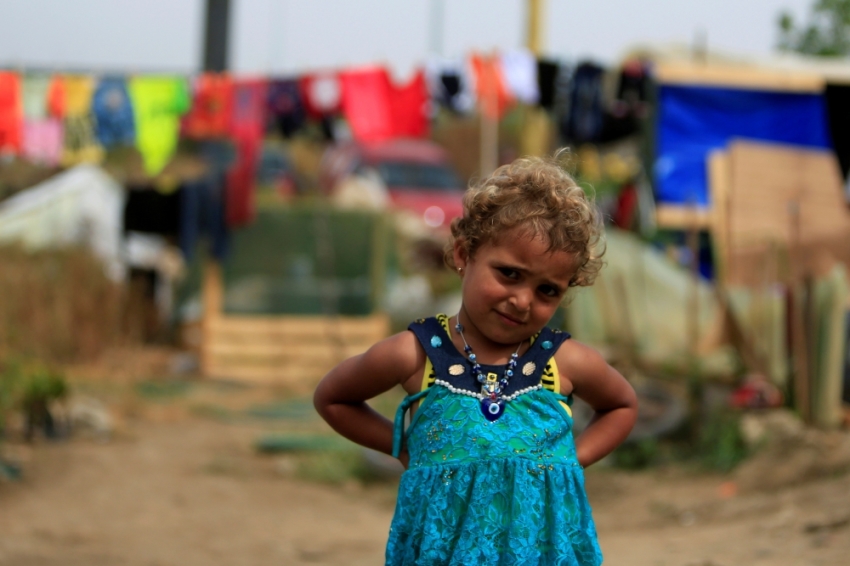Lebanon’s top Christian cleric slams politicians' inability to stabilize gov't: ‘What are they waiting for?'

Lebanon's top Christian cleric has criticized the nation’s politicians for not stabilizing the government as the country, once known by some as a haven for Christianity in the Middle East, faces severe financial and political instability.
"We don't have bread, we don't have medicine, we don't have fuel, what are they waiting for?" Maronite Patriarch Bechara Boutros Al-Rai said after a meeting with President Michel Aoun last week, Reuters reports.
Rai's comments come ahead of his planned trip to the Vatican on July 1. He will meet with Pope Francis to discuss the deteriorating economic conditions in the Middle Eastern country.
Lebanon has not had a government in place since last summer when outgoing Prime Minister Hassan Diab's cabinet resigned in the wake of the tragic explosion in Beirut last August that killed over 200 and caused thousands of injuries.
Aoun and Prime Minister-designate Saad al-Hariri have not seen eye to eye on cabinet positions, which has prevented the formation of a government to enact reforms, Reuters adds. The two have traded verbal attacks.
"The country needs salvation; it doesn't need verbal war," Rai was quoted as saying. "Respect each other, insults don't do anything, they just muddy the waters."
Tony Badran, a research fellow focusing on Lebanon for the Washington-based think tank Foundation for Defense of Democracies, which specializes in foreign policy and national security, told The Christian Post that much of the nation’s problems were caused by the nation’s political elite seeking political gain.
“The political/financial elite … is basically kicking the can down the road trading blame, and for the most part shifting the burden of all of these losses onto the citizens and the depositors. And there is no government that is being formed because for a variety of reasons,” he said.
“One has to do with the depravity of the political class that got the country to where it is in the first place, the personal ambitions of politicians, including the most powerful. And really, the only kind of relevant actor in the country is the terrorist group Hezbollah.”
Badran said an “actual structural reform is basically impossible" since the government has failed to re-establish.
For someone to take steps in reforming the corrupt system, they would lose political power, he explained.
“In terms of corruption, everyone partakes in the corruption. And because of the predominance of Hezbollah in the country at every level … everyone is complicit in that corruption," Badran said. "That’s in part why you are seeing this paralysis."
Lebanese citizens have lost much of their purchasing power because of inflation. But Badran said that Lebanon seems to accept their financial situation that resulted from a financial “Ponzi scheme.”
“It hasn’t resulted in any mass public outcry that has forced the elite into changing the policies or ousting them from power,” Badran explained. “It’s basically resignation and adaptation and conditioning.”
He said the elite’s attempt to “condition the population to adapt to a new standard of living and a new mode of living appears by and large to have succeeded.”
When Lebanon’s financial situation began to crumble, the FDD research fellow said the “fiction” people were living in “finally burst.”
Though the purchasing power of the people has “shrunk dramatically,” Badran said the situation not “a clear cut image.”
The latest Lebanon Economic Monitor released by the World Bank last Tuesday stated that Lebanon’s economic crisis could be one of the world’s top-three severe financial crises since the mid-19th century.
“The dire socio-economic conditions risk systemic national failings with regional and potentially global consequences,” cautioned the World Bank.
Experts warned in April that Lebanon was on the brink of financial collapse if international actors failed to intervene.
In an April panel discussion, Bishop Peter Karam, the patriarchal vicar and titular bishop of Acre of Phoenicia of the Maronites, contended that Lebanon’s financial crisis is mainly due to corruption in the government.
“We must admit the fact that there is a lot of corruption in Lebanon. A lot of corruption in Lebanon financially, politically, socially. … The collapse of the financial institutions in Lebanon is a very complex issue. …,” Karam said. “The financial sector in Lebanon was a model in the region for a lot of years. The country was known as the Switzerland of the Middle East. But now, it’s just nonexistent because of mismanagement, corruption, and political interference in the workings of the central bank and the financial sector."
Pope Francis has promised to visit Lebanon once politicians agree on a new government, according to Reuters.
Emily Wood is a reporter for The Christian Post. She can be reached at: emily.wood@christianpost.com



























